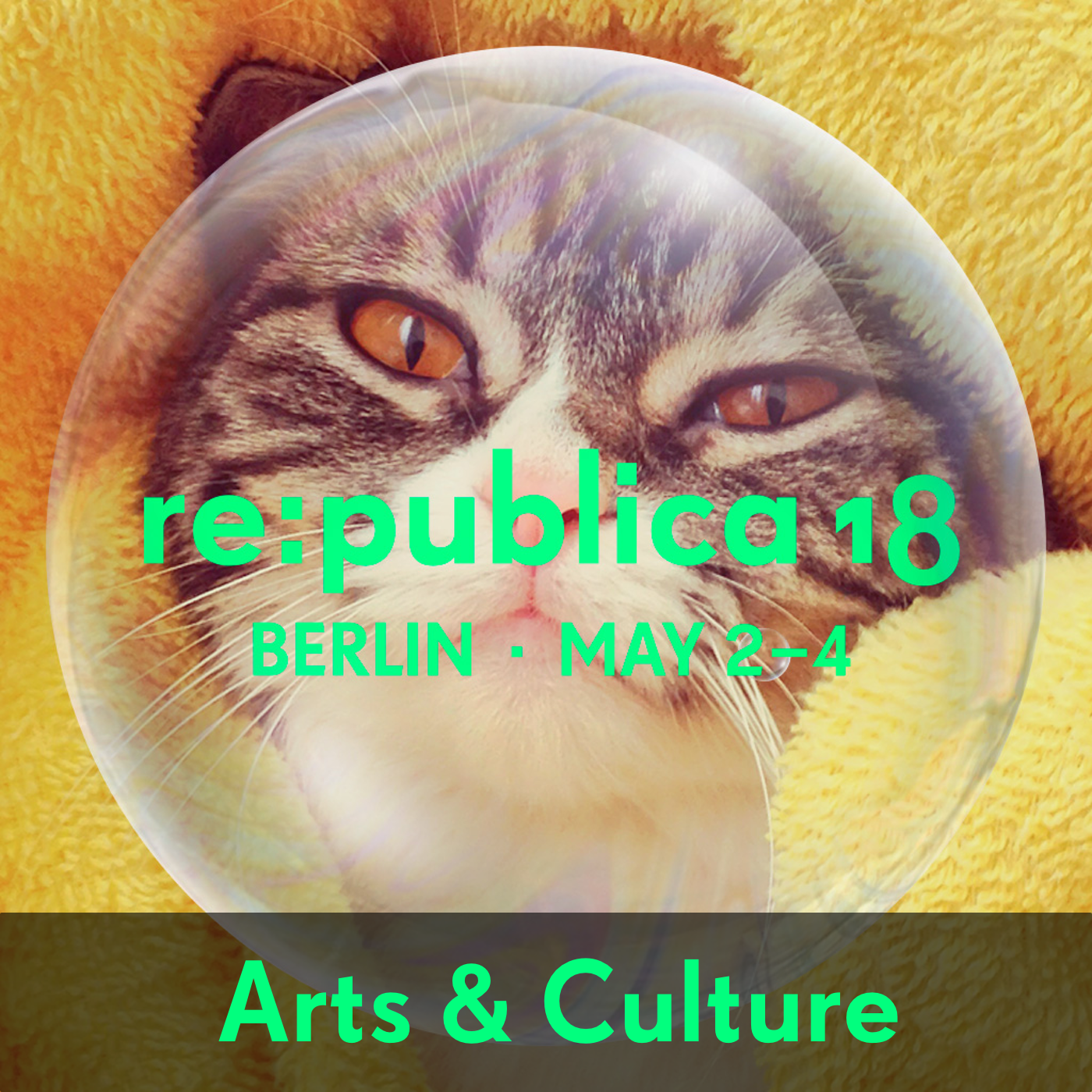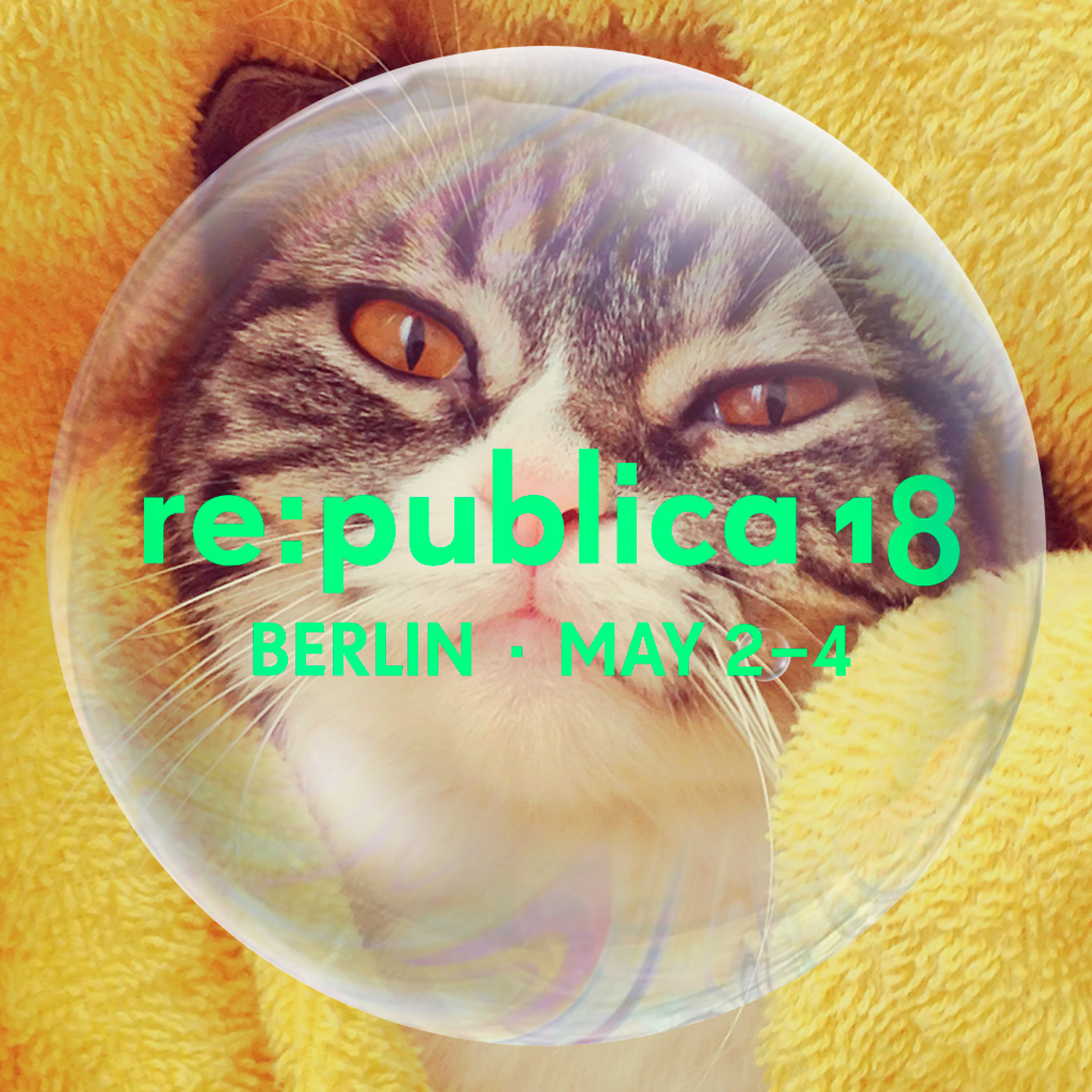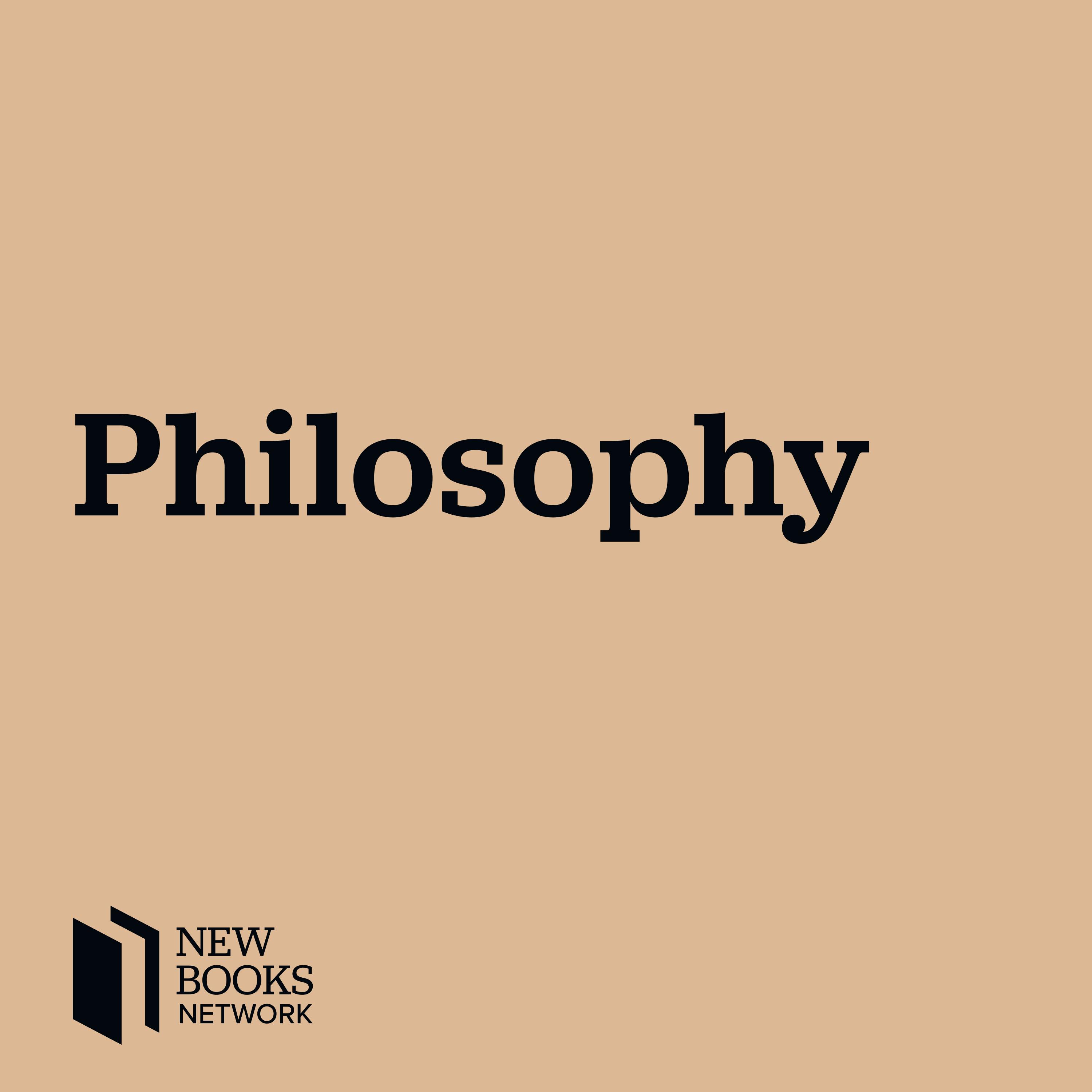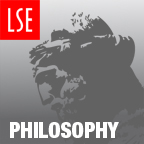Shows
 Branches of Philosophy Podcast[2] Thinking about Oneself From Nonconceptual Content to the Concept of a Self By Kristina MusholtAn introduction and summary of "Thinking about Oneself
From Nonconceptual Content to the Concept of a Self"
By Kristina Musholt 2015
A novel theory of self-consciousness and its development that integrates philosophical considerations with recent findings in the empirical sciences.
In this book, Kristina Musholt offers a novel theory of self-consciousness, understood as the ability to think about oneself. Traditionally, self-consciousness has been central to many philosophical theories. More recently, it has become the focus of empirical investigation in psychology and neuroscience. Musholt draws both on philosophical considerations and on insights from the empirical sciences to offer a new account...2024-09-2410 min
Branches of Philosophy Podcast[2] Thinking about Oneself From Nonconceptual Content to the Concept of a Self By Kristina MusholtAn introduction and summary of "Thinking about Oneself
From Nonconceptual Content to the Concept of a Self"
By Kristina Musholt 2015
A novel theory of self-consciousness and its development that integrates philosophical considerations with recent findings in the empirical sciences.
In this book, Kristina Musholt offers a novel theory of self-consciousness, understood as the ability to think about oneself. Traditionally, self-consciousness has been central to many philosophical theories. More recently, it has become the focus of empirical investigation in psychology and neuroscience. Musholt draws both on philosophical considerations and on insights from the empirical sciences to offer a new account...2024-09-2410 min re:publica 18 - Arts & CultureDigitale IdentitätDigitalität als Identitätsstifter oder Identitätsverwertung?
Ich kann sein wer ich will! Wer ist ich? Was will Ich? Was kann Ich schaffen?
Diskussion zur Rolle einer virtuellen Identität in Bezug auf künstlerische Praxis.
Anika MeierRafael HorzonKristina MusholtKathrin WeßlingAndy KassierWir verhalten uns je nach Situation und treten als verschiedene Personen auf:Vorsichtig gegenüber einem Fremden, Überschwänglich auf Partys oder förmlich auf dem Amt. Im Netz ist es scheinbar nicht anders, auch auf LinkedIn, Facebook oder Twitter unterscheiden sich die Arten in denen wir kommunizieren.Der Unterschied ist, dass wir u...2018-05-0324 min
re:publica 18 - Arts & CultureDigitale IdentitätDigitalität als Identitätsstifter oder Identitätsverwertung?
Ich kann sein wer ich will! Wer ist ich? Was will Ich? Was kann Ich schaffen?
Diskussion zur Rolle einer virtuellen Identität in Bezug auf künstlerische Praxis.
Anika MeierRafael HorzonKristina MusholtKathrin WeßlingAndy KassierWir verhalten uns je nach Situation und treten als verschiedene Personen auf:Vorsichtig gegenüber einem Fremden, Überschwänglich auf Partys oder förmlich auf dem Amt. Im Netz ist es scheinbar nicht anders, auch auf LinkedIn, Facebook oder Twitter unterscheiden sich die Arten in denen wir kommunizieren.Der Unterschied ist, dass wir u...2018-05-0324 min re:publica 18 - Alle SessionsDigitale IdentitätAnika Meier, Rafael Horzon, Kristina Musholt, Kathrin Weßling, Andy Kassier
Wir verhalten uns je nach Situation und treten als verschiedene Personen auf:
Vorsichtig gegenüber einem Fremden, Überschwänglich auf Partys oder förmlich auf dem Amt. Im Netz ist es scheinbar nicht anders, auch auf LinkedIn, Facebook oder Twitter unterscheiden sich die Arten in denen wir kommunizieren.
Der Unterschied ist, dass wir unsere Indifference verstetigt haben. Unsere Interaktion wird zum Werk und umso mehr Zeit und Finess legen wir in die Kuration unserer virtuellen Persönlichkeiten.
Es gilt das Kredo Einnehmen und Beeindrucken, wir wollen ja gemocht und geschä...2018-05-0324 min
re:publica 18 - Alle SessionsDigitale IdentitätAnika Meier, Rafael Horzon, Kristina Musholt, Kathrin Weßling, Andy Kassier
Wir verhalten uns je nach Situation und treten als verschiedene Personen auf:
Vorsichtig gegenüber einem Fremden, Überschwänglich auf Partys oder förmlich auf dem Amt. Im Netz ist es scheinbar nicht anders, auch auf LinkedIn, Facebook oder Twitter unterscheiden sich die Arten in denen wir kommunizieren.
Der Unterschied ist, dass wir unsere Indifference verstetigt haben. Unsere Interaktion wird zum Werk und umso mehr Zeit und Finess legen wir in die Kuration unserer virtuellen Persönlichkeiten.
Es gilt das Kredo Einnehmen und Beeindrucken, wir wollen ja gemocht und geschä...2018-05-0324 min New Books in PhilosophyKristina Musholt, “Thinking About Oneself: From Nonconceptual Content to the Concept of a Self” (MIT Press, 2015)When Descartes famously concluded “I think, therefore I am”, he took for granted his ability to use the first person pronoun to refer to himself. But how do we come to have this capacity for self-conscious thought? We aren’t born with it, and while we may not be the only creatures that can think thoughts about ourselves, this ability does not seem to be very widespread. For starters, to be able to think of oneself, it seems one must first possess a concept of the self of what the “I” refers to. In Thinking About Oneself: From Nonconceptual Content to...2017-08-151h 05
New Books in PhilosophyKristina Musholt, “Thinking About Oneself: From Nonconceptual Content to the Concept of a Self” (MIT Press, 2015)When Descartes famously concluded “I think, therefore I am”, he took for granted his ability to use the first person pronoun to refer to himself. But how do we come to have this capacity for self-conscious thought? We aren’t born with it, and while we may not be the only creatures that can think thoughts about ourselves, this ability does not seem to be very widespread. For starters, to be able to think of oneself, it seems one must first possess a concept of the self of what the “I” refers to. In Thinking About Oneself: From Nonconceptual Content to...2017-08-151h 05 Summer 2013 | Public lectures and events | Audio and pdfPhilosophy Stand Up – No JokeContributor(s): Dr Gordon Finlayson, Dr Simon Glendinning, Professor Laurence Goldstein, Professor MM McCabe, Dr Kristina Musholt, Dr Lea Ypi | Six philosophers have ten minutes each to pitch their arguments to a live audience. No deviation, hesitation or repetition! Gordon Finlayson is senior lecturer in philosophy at the University of Sussex. Simon Glendinning is reader in European philosophy at the European Institute, LSE, and director of the Forum for European Philosophy. Laurence Goldstein is professor of philosophy at the University of Kent. MM McCabe is professor of ancient philosophy at King’s College London. Kristina Musholt is LSE fellow in th...2013-06-251h 38
Summer 2013 | Public lectures and events | Audio and pdfPhilosophy Stand Up – No JokeContributor(s): Dr Gordon Finlayson, Dr Simon Glendinning, Professor Laurence Goldstein, Professor MM McCabe, Dr Kristina Musholt, Dr Lea Ypi | Six philosophers have ten minutes each to pitch their arguments to a live audience. No deviation, hesitation or repetition! Gordon Finlayson is senior lecturer in philosophy at the University of Sussex. Simon Glendinning is reader in European philosophy at the European Institute, LSE, and director of the Forum for European Philosophy. Laurence Goldstein is professor of philosophy at the University of Kent. MM McCabe is professor of ancient philosophy at King’s College London. Kristina Musholt is LSE fellow in th...2013-06-251h 38 Summer 2013 | Public lectures and events | VideoPhilosophy Stand Up – No JokeContributor(s): Dr Gordon Finlayson, Dr Simon Glendinning, Professor Laurence Goldstein, Professor MM McCabe, Dr Kristina Musholt, Dr Lea Ypi | Six philosophers have ten minutes each to pitch their arguments to a live audience. No deviation, hesitation or repetition! Gordon Finlayson is senior lecturer in philosophy at the University of Sussex. Simon Glendinning is reader in European philosophy at the European Institute, LSE, and director of the Forum for European Philosophy. Laurence Goldstein is professor of philosophy at the University of Kent. MM McCabe is professor of ancient philosophy at King’s College London. Kristina Musholt is LSE fellow in th...2013-06-251h 38
Summer 2013 | Public lectures and events | VideoPhilosophy Stand Up – No JokeContributor(s): Dr Gordon Finlayson, Dr Simon Glendinning, Professor Laurence Goldstein, Professor MM McCabe, Dr Kristina Musholt, Dr Lea Ypi | Six philosophers have ten minutes each to pitch their arguments to a live audience. No deviation, hesitation or repetition! Gordon Finlayson is senior lecturer in philosophy at the University of Sussex. Simon Glendinning is reader in European philosophy at the European Institute, LSE, and director of the Forum for European Philosophy. Laurence Goldstein is professor of philosophy at the University of Kent. MM McCabe is professor of ancient philosophy at King’s College London. Kristina Musholt is LSE fellow in th...2013-06-251h 38 Department of Philosophy, Logic and Scientific Method | VideoProfile: Kristina Musholt [Video]Contributor(s): Kristina Musholt | A profile of Kristina Musholt, fellow in Philosophy, Forum for European Philosophy.2011-10-1006 min
Department of Philosophy, Logic and Scientific Method | VideoProfile: Kristina Musholt [Video]Contributor(s): Kristina Musholt | A profile of Kristina Musholt, fellow in Philosophy, Forum for European Philosophy.2011-10-1006 min Department of Philosophy, Logic and Scientific MethodProfile: Kristina Musholt [Video]Contributor(s): Kristina Musholt | A profile of Kristina Musholt, fellow in Philosophy, Forum for European Philosophy.2011-10-1006 min
Department of Philosophy, Logic and Scientific MethodProfile: Kristina Musholt [Video]Contributor(s): Kristina Musholt | A profile of Kristina Musholt, fellow in Philosophy, Forum for European Philosophy.2011-10-1006 min Spring 2011 | Public lectures and events | VideoEating AnimalsContributor(s): Jonathan Safran Foer, Kristina Musholt | Eating Animals is an exhaustively-argued account of one man's decade-long struggle with vegetarianism. Part memoir, part exposé, the book examines the topics of factory farming and commercial fisheries and explores the cultural significance of food. Jonathan Safran Foer is the author of Extremely Loud and Incredibly Close and Everything Is Illuminated, which won the National Jewish Book Award and the Guardian First Book Award.Kristina Musholt is deputy director of the Forum for European Philosophy and fellow in the Department of Philosophy, Logic and Scientific Method, LSE.2011-01-191h 24
Spring 2011 | Public lectures and events | VideoEating AnimalsContributor(s): Jonathan Safran Foer, Kristina Musholt | Eating Animals is an exhaustively-argued account of one man's decade-long struggle with vegetarianism. Part memoir, part exposé, the book examines the topics of factory farming and commercial fisheries and explores the cultural significance of food. Jonathan Safran Foer is the author of Extremely Loud and Incredibly Close and Everything Is Illuminated, which won the National Jewish Book Award and the Guardian First Book Award.Kristina Musholt is deputy director of the Forum for European Philosophy and fellow in the Department of Philosophy, Logic and Scientific Method, LSE.2011-01-191h 24 Spring 2011 | Public lectures and events | Audio and pdfEating AnimalsContributor(s): Jonathan Safran Foer, Kristina Musholt | Eating Animals is an exhaustively-argued account of one man's decade-long struggle with vegetarianism. Part memoir, part exposé, the book examines the topics of factory farming and commercial fisheries and explores the cultural significance of food. Jonathan Safran Foer is the author of Extremely Loud and Incredibly Close and Everything Is Illuminated, which won the National Jewish Book Award and the Guardian First Book Award.Kristina Musholt is deputy director of the Forum for European Philosophy and fellow in the Department of Philosophy, Logic and Scientific Method, LSE.2011-01-191h 24
Spring 2011 | Public lectures and events | Audio and pdfEating AnimalsContributor(s): Jonathan Safran Foer, Kristina Musholt | Eating Animals is an exhaustively-argued account of one man's decade-long struggle with vegetarianism. Part memoir, part exposé, the book examines the topics of factory farming and commercial fisheries and explores the cultural significance of food. Jonathan Safran Foer is the author of Extremely Loud and Incredibly Close and Everything Is Illuminated, which won the National Jewish Book Award and the Guardian First Book Award.Kristina Musholt is deputy director of the Forum for European Philosophy and fellow in the Department of Philosophy, Logic and Scientific Method, LSE.2011-01-191h 24 Spring 2011 | Public lectures and events | Audio and pdfEating AnimalsContributor(s): Jonathan Safran Foer, Kristina Musholt | Eating Animals is an exhaustively-argued account of one man's decade-long struggle with vegetarianism. Part memoir, part exposé, the book examines the topics of factory farming and commercial fisheries and explores the cultural significance of food. Jonathan Safran Foer is the author of Extremely Loud and Incredibly Close and Everything Is Illuminated, which won the National Jewish Book Award and the Guardian First Book Award.Kristina Musholt is deputy director of the Forum for European Philosophy and fellow in the Department of Philosophy, Logic and Scientific Method, LSE.2011-01-191h 24
Spring 2011 | Public lectures and events | Audio and pdfEating AnimalsContributor(s): Jonathan Safran Foer, Kristina Musholt | Eating Animals is an exhaustively-argued account of one man's decade-long struggle with vegetarianism. Part memoir, part exposé, the book examines the topics of factory farming and commercial fisheries and explores the cultural significance of food. Jonathan Safran Foer is the author of Extremely Loud and Incredibly Close and Everything Is Illuminated, which won the National Jewish Book Award and the Guardian First Book Award.Kristina Musholt is deputy director of the Forum for European Philosophy and fellow in the Department of Philosophy, Logic and Scientific Method, LSE.2011-01-191h 24 Spring 2011 | Public lectures and events | VideoEating AnimalsContributor(s): Jonathan Safran Foer, Kristina Musholt | Eating Animals is an exhaustively-argued account of one man's decade-long struggle with vegetarianism. Part memoir, part exposé, the book examines the topics of factory farming and commercial fisheries and explores the cultural significance of food. Jonathan Safran Foer is the author of Extremely Loud and Incredibly Close and Everything Is Illuminated, which won the National Jewish Book Award and the Guardian First Book Award.Kristina Musholt is deputy director of the Forum for European Philosophy and fellow in the Department of Philosophy, Logic and Scientific Method, LSE.2011-01-191h 24
Spring 2011 | Public lectures and events | VideoEating AnimalsContributor(s): Jonathan Safran Foer, Kristina Musholt | Eating Animals is an exhaustively-argued account of one man's decade-long struggle with vegetarianism. Part memoir, part exposé, the book examines the topics of factory farming and commercial fisheries and explores the cultural significance of food. Jonathan Safran Foer is the author of Extremely Loud and Incredibly Close and Everything Is Illuminated, which won the National Jewish Book Award and the Guardian First Book Award.Kristina Musholt is deputy director of the Forum for European Philosophy and fellow in the Department of Philosophy, Logic and Scientific Method, LSE.2011-01-191h 24